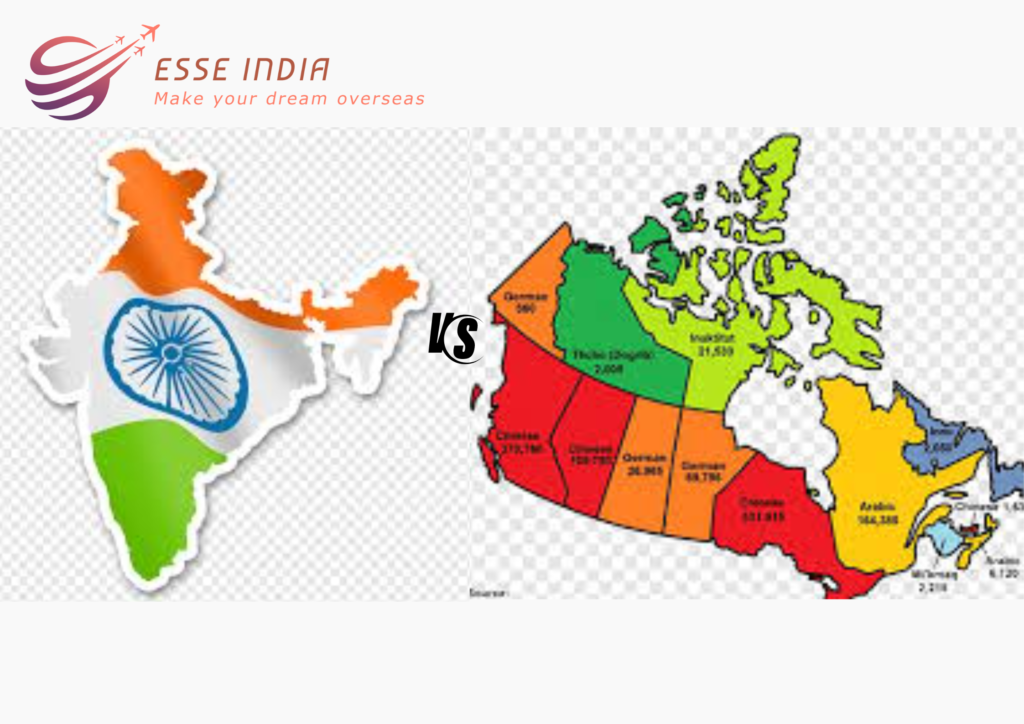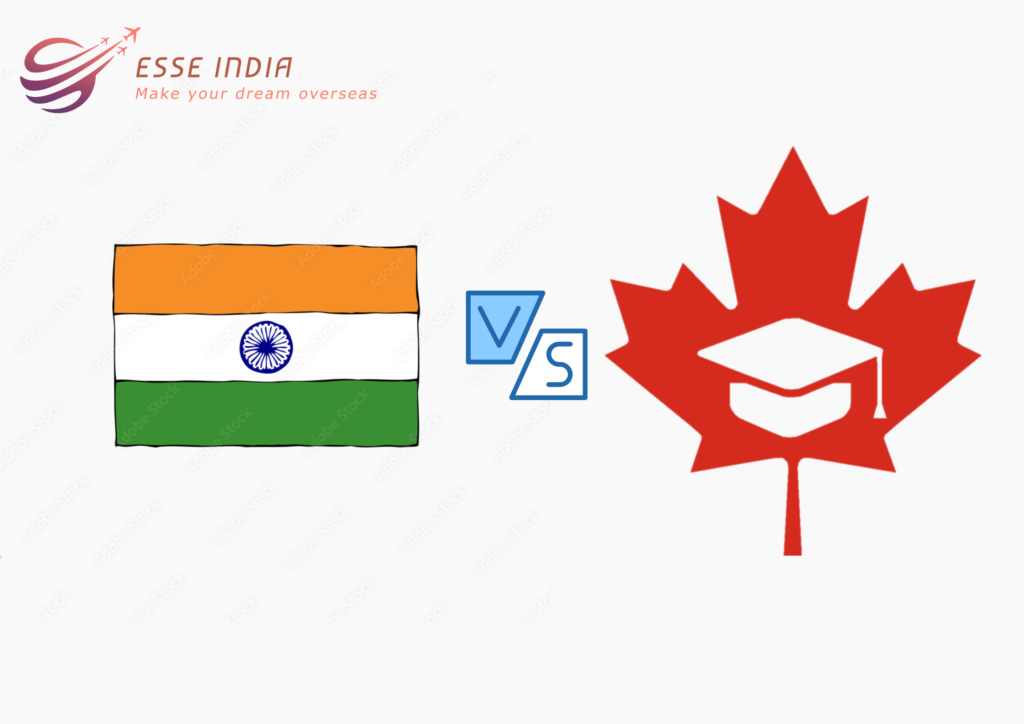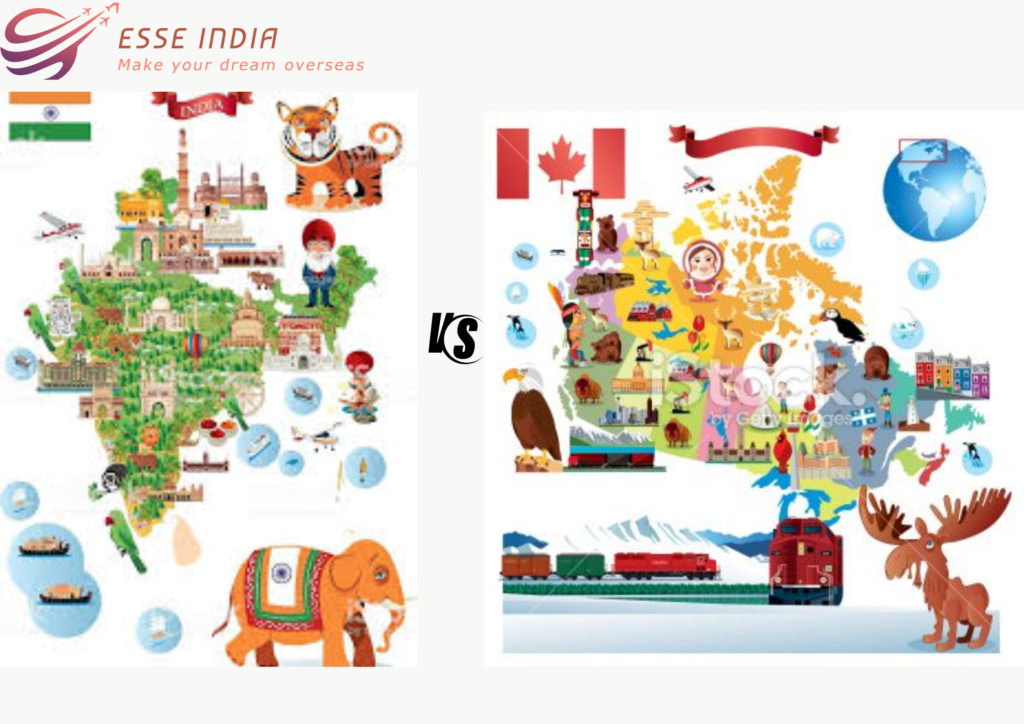
the Indian and Canadian Education Systems
The Indian and Canadian education systems offer distinct approaches to learning. In India, the focus is often on rigorous academic standards and a structured curriculum, emphasizing memorization and examination performance. In contrast, Canada’s education system fosters a more dynamic and interactive learning environment, encouraging critical thinking and practical application of knowledge.
Table of Contents
While India’s system is characterized by its competitive nature and emphasis on theoretical knowledge, Canada’s approach is more flexible and student-centered, promoting exploration and personal growth. Additionally, Canadian schools typically offer more advanced resources and a supportive atmosphere, contributing to a well-rounded educational experience.
Choosing the right country for your education doesn’t have to be a complex decision. With the guidance of a trusted immigration consultant, you can make an informed choice. If you’re uncertain about whether to pursue education in India or Canada, this blog provides detailed insights into the educational systems and their differences to help you make a smart decision.
Indian institutions are increasingly valued for their high placement rates and advanced academic offerings. However, Canada remains a top choice for many, with over 1.8 million students studying and working there, reflecting its strong educational environment and opportunities.
Comparing the Benefits of the Education Systems in India and Canada
Both India and Canada offer unique advantages for students pursuing their education. Here’s a look at the benefits provided by each country:

Benefits of the Indian Education System
In India, students benefit from several government initiatives, although these may not be as extensive as those in Canada. Key advantages include:
- Free Public Education: Education is free and considered a fundamental right for children aged 4 to 16 years in India.
- Healthcare: While healthcare services are available to all citizens, there are costs associated with outpatient and inpatient care, ranging from 18% to 44%.
- Social Security Benefits: Indian students can access benefits such as the Employees Provident Fund Organization (EPFO), health insurance, and the Public Provident Fund (PPF).
- Government Schemes: Various government schemes support citizens, including Atal Pension Yojna, Ayushman Bharat Yojna for healthcare, Pradhan Mantri Awas Yojana for housing, and Pradhan Mantri Jan Dhan Yojana for financial inclusion.
These benefits contribute to a supportive environment for education and personal development in India.
Benefits of Studying and Living in Canada
Canada offers a superior quality of life and numerous advantages for residents and students. Here are some key benefits:
- Comprehensive Support: Canada provides various benefits, including pensions for housing, employment insurance, support for disabled individuals, and educational advantages for students.
- Free Public Schooling: Children of permanent residents can access free public education.
- Affordable Education: Canada features a three-tier education system—primary, secondary, and higher education—with relatively low tuition fees.
- Immigrant Benefits: Immigrants who accumulate 40 credit points or gain 10 years of work experience in Canada also benefit from these advantages.
These features contribute to an enriching and supportive environment for both living and studying in Canada.

Eligibility Criteria for Higher Education: India vs. Canada
Both India and Canada have distinct eligibility requirements for higher education admissions, and some private institutions may require entrance exams for entry.
India:
Bachelor’s Degree Eligibility:
- Completion of Class 12 from a recognized institution with at least 50% marks.
- Meeting the minimum cutoff for entrance exams, which varies by college or university.
Master’s Degree Eligibility:
- A bachelor’s degree from a recognized university.
- Success in entrance exams such as CAT, AMUEE, or JNUEE.
Canada:
Bachelor’s Degree Eligibility:
- Completion of high school (+2) with a minimum of 65% marks.
- Proficiency in English, typically with a score of 6.5 or higher on the IELTS.
- Proof of financial support.
- Fulfillment of the Canadian student permit requirements.
Master’s Degree Eligibility:
- A minimum of 16 years of education with a CGPA of 3.0 or higher in a bachelor’s degree.
- Proof of English language proficiency, generally with a score of 6.5 or above on the IELTS.
- GMAT/GRE scores, depending on the university.
- Proof of financial support.
- Eligibility for a Canadian student permit.
Top Universities
In India:
- University of Delhi
- Indian Institute of Technology, Bombay
- Indian Institute of Technology, Kanpur
- Indian Institute of Technology, Madras
- Indian Institute of Technology, Delhi
- Indian Institute of Technology, Kharagpur
- Indian Institute of Science
- Jawaharlal Nehru University
- Savitribai Phule University
- Vellore Institute of Technology
In Canada:
- University of Toronto
- McGill University
- University of British Columbia
- University of Montreal
- University of Alberta
- McMaster University
- University of Waterloo
- Western University
- Queen’s University
- University of Calgary
Get in touch now with Esse india immigration for more information.





